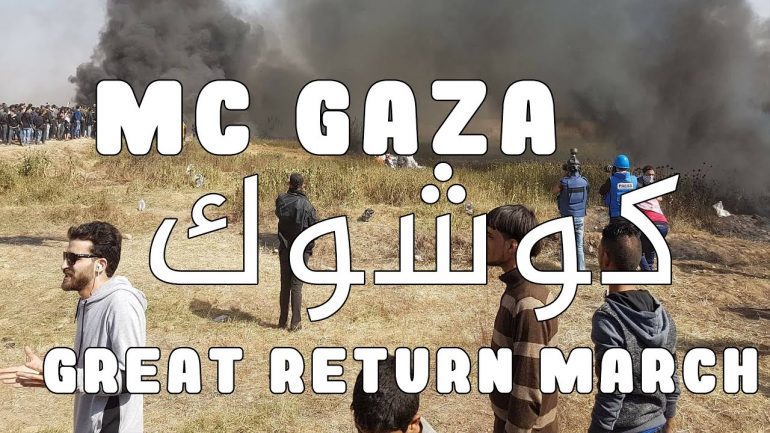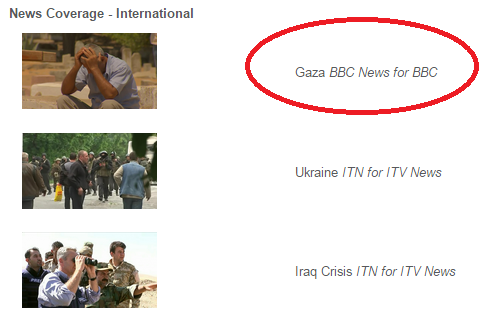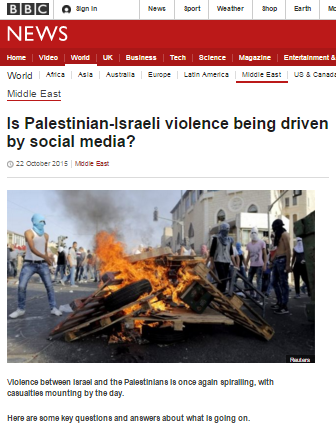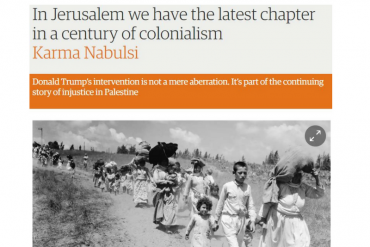The May 31st edition of BBC Radio 4’s ‘From Our Own Correspondent’ included an item by freelance journalist Robin Denselow which was introduced by presenter Kate Adie (from 17:06 here) as follows: [emphasis in italics in the original]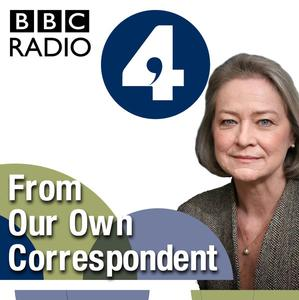
Adie: “The history of the Israeli-Palestinian conflict is long, complicated and contentious. And both sides want their version of that history to dominate as they try to win over foreign diplomats, politicians and the wider world. Violence brings one set of headlines. Cultural events and exchanges are seen as another way of achieving that. A festival was held in the West Bank recently aiming to give the growing Palestinian music scene a major boost and to amplify the voices of ordinary Palestinians. Robin Denselow was in Ramallah.”
Listeners certainly did hear one dominant, context-free narrative during the next five minutes with Denselow repeatedly referring to ‘Palestine’, thus breaching the BBC’s ‘style guide’ which states:
“…you should not affix the name ‘Palestine’ to Gaza or the West Bank – rather, it is still an aspiration or an historical entity.”
Audiences were told that Palestinians are “so isolated from the rest of the world” and of course no BBC report from PA controlled territory would be complete without a mention of “checkpoints”.
“The young audience had travelled to the Palestinian Music Expo – or PMX – from right across the West Bank, negotiating the Israeli checkpoints on the way.”
Listeners were told that foreign visitors to that music festival:
“…were welcomed by the Palestinian minister of culture, Ihab Bseiso, for whom PMX clearly had political significance. Promoting culture in Palestine is absolutely crucial, he told me. It’s a form of resistance, protecting the national heritage. The minister, who enthused about the years he spent studying at Cardiff University, gave us a personal tour of an uncompleted but palatial new building on a Ramallah hilltop. Originally intended as a grand guest-house for visiting dignitaries, it’s to be Palestine’s new national library and cultural hub.”
Denselow refrained from telling listeners that the building originally had another function too:
“Originally, the guest palace in Ramallah was intended to serve as the residence for the Palestinian president and to house international diplomats, leaders and delegations during visits.
However, a senior Palestinian official was quoted as saying that Abbas decided to remain in his own home out of fear that the extravagant 4,700 square meter palace, which cost 6 million dollars to build, would evoke negative reactions among the Palestinian public.”
Again paraphrasing his host Bseiso, Denselow told listeners that:
“He claimed that what is happening on the cultural front in Palestine is a miracle it’s exceptionally hard to achieve under occupation. And he went on to recite the everyday problems of checkpoints and restrictions on movement.”
Denselow of course did not bother to remind Radio 4 audiences that checkpoints and “restrictions on movement” did not exist until the Palestinians chose to launch the second Intifada terror war. He went on to describe excursions without clarifying whether the organisers were the Palestinian Authority or his PMX hosts.
“They organised a trip to show their foreign visitors their side of the conflict. We were driven out through Qalandiya checkpoint, where Israeli troops looked through out passports, and then taken to the bitterly divided city of Hebron.”
At that point it would of course have been helpful to listeners to have been reminded of the fact that Hebron is “divided” because twenty-one years ago the Palestinian Authority agreed to divide it into two areas: H1 under PA control and H2 (roughly 20% of the city) under Israeli control. That reminder was not forthcoming and neither was any mention of the ancient Hebron Jewish community or the massacre of 1929.
“In the Israeli-controlled sector settlers live alongside the Palestinians who complained to us how many of their shops have been closed, how they need nets to protect their market from rocks thrown by settlers and about the streets where they claimed they’re now banned from walking.”
The fact that those shops – located on one street – were closed due to Palestinian violence during the Second Intifada was not communicated to listeners. With a nod towards the BBC’s supposed editorial standards on impartiality, Denselow then inaccurately told listeners that the victims of Palestinian violence in Hebron have been exclusively “Israeli soldiers”.
“Over the years of conflict Palestinians have attacked Israeli soldiers with knives and rocks too and the small settler community says it also fears for its safety.”
Stories such as that of ten month-old Shalhevet Pass – murdered by a Palestinian sniper – or thirteen year-old Hallel Yaffa Ariel clearly do not fit into Denselow’s narrative. His story then took a bizarre turn:
“But being seen here with a Palestinian guide was clearly dangerous. A car – apparently driven by an angry settler – narrowly missed our group then did a U-turn and drove back at us again at speed. One record industry executive would almost certainly have been hit if he hadn’t been pulled back.”
Neither Israeli nor Palestinian media outlets have any record of such an event having taken place in Hebron around the time of the PMX event between April 11th and 13th. Denselow provided no evidence to support his guess that the car was “driven by an angry settler” but promoted it to BBC audiences regardless.
Interestingly, a similar claim is to be found in a post shared on the PMX Facebook page on April 18th. That post was written by one Younes Arar – who was apparently guiding Denselow’s group on their visit to Hebron.
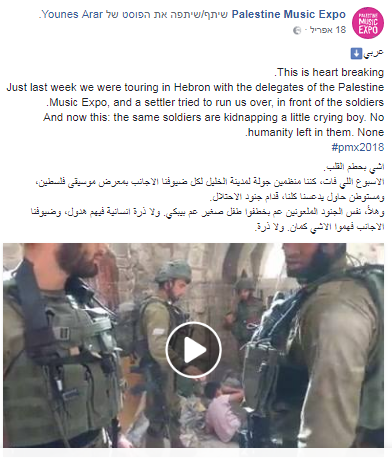
Younes Arar is involved with an NGO called ‘Frontline Defenders’ and the co-founder of a campaign against what it calls “illegal Israeli settlements in Hebron” under the slogan ”Dismantle the Ghetto, Take Settlers Out of Hebron”. According to the NGO’s website he is also “the Director of Hebron section of the Colonization and Wall Resistance Committee of the Palestinian Liberation Organisation – a grass-roots extension of the Palestinian Ministry on the Wall and Settlements Affairs”. As can be determined by a quick perusal of the activist’s Twitter account, Younes Arar is not particularly committed to accuracy, facts or a peaceful two-state solution to the Arab Israeli conflict.

Interestingly, the prolific Tweeter Younes Arar made no mention on his Twitter account of that alleged incident in Hebron at the time.
Denselow went on to describe another trip, again erasing from his story the Palestinian terrorism that made the building of the anti-terrorist fence necessary.
“Other excursions included a visit to the overcrowded Shuafat refugee camp hidden away behind walls and a checkpoint in Jerusalem.”
When he finally got round to describing the music festival itself, the earlier motif of Palestinian “national heritage” went somewhat awry.
“From jazz to satirical political rock songs, Balkan-Palestinian fusion and angry hip-hop. Musicians from Gaza had been refused travel permits to attend but there was an extraordinary video from a rapper who calls himself MC Gaza filmed amid the violent and bloody ‘Great March of Return’ protests on the border with Israel.”
Denselow did not bother to tell Radio 4 listeners that the video he described as “extraordinary” advocates the destruction of Israel. Describing another band, he went on:
“‘This is the only way to fight back against the occupation’ band member Adnan Jubran commented on stage. Later he told me ‘it’s trying to delete our culture. This is how we say no’.”
Near the beginning of his report Denselow stated that one of the festival’s purposes is:
“…to give those [foreign] visitors a distinctively Palestinian view of the place and its problems.”
There can be no doubt that Denselow and the other foreign visitors got exactly that. Unfortunately however, so did BBC Radio 4 listeners – with no provision of essential context and no regard for the BBC’s supposed editorial standards of accuracy and impartiality.

